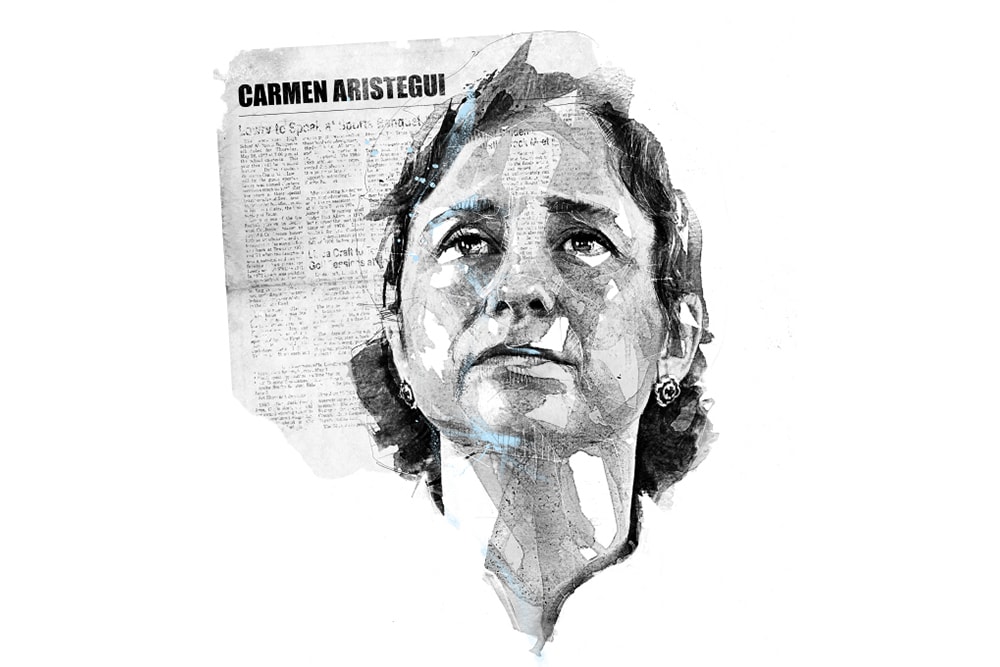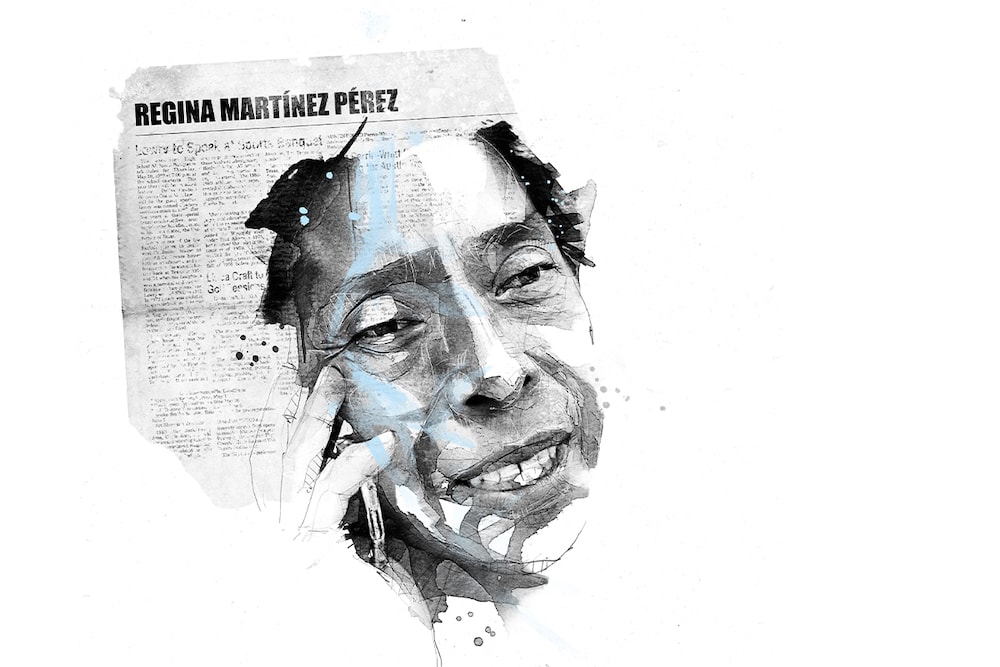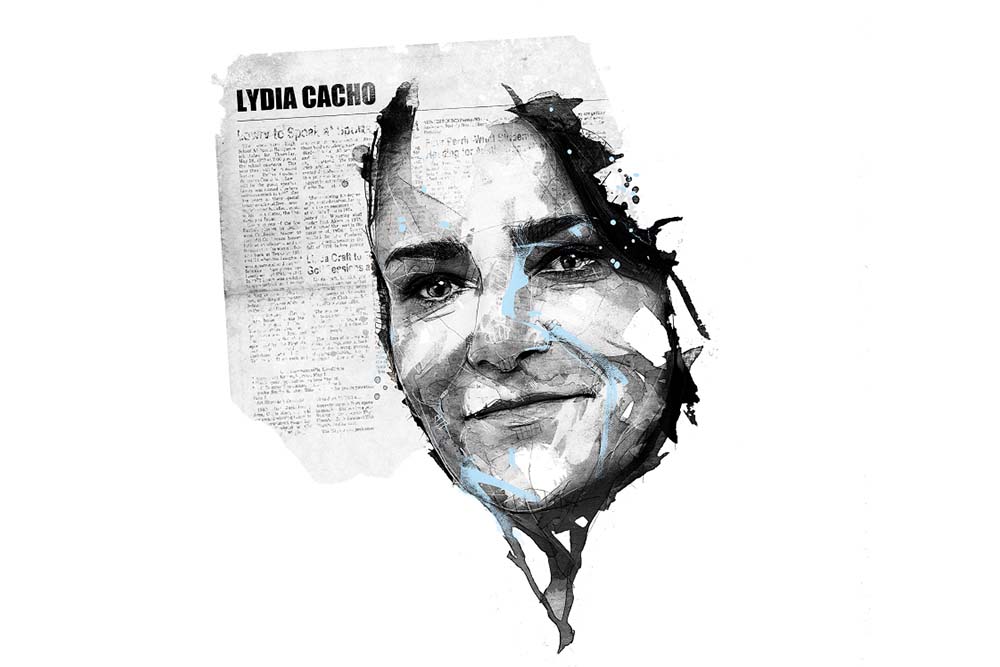You can fire her. You can try to isolate her. But you can't keep the journalist who helped found MexicoLeaks from being a thorn in the side of Mexico's ruling class.
On 13 March 2015, during what would become her last broadcast on MVS, Carmen Aristegui had this to say about the current climate for the press in Mexico: It is not time to submit. It is not time to accept backsliding. It is not time for Mexican society, which has taken time to open space for freedom of expression, public debate, social presence, awareness, and fundamental rights, to move backwards.
Carmen Aristegui was born on 18 January 1964 in Mexico City and studied Communication Sciences at the National Autonomous University of Mexico (UNAM). She is well known for investigating corruption and cases involving high-level officials in Mexico, bringing to the public’s attention some of the more questionable actions of their elected representatives. Aristegui hosts a weekday programme on CNN México that regularly covers politically charged topics, such as the September 2014 disappearance and suspected murder of 43 pedagogy students in Ayotzinapa. In November 2014, it was her special investigations team, Primera Emisión MVS, which revealed that Mexico’s First Lady had bought a mansion from a government contractor, a story that brought up issues of conflict of interest within the administration of President Enrique Peña Nieto. She also helped to found the whistleblower website Mexicoleaks in early March 2015.
Five days after the site’s launch on 10 March, Aristegui was fired from MVS Radio 102.5 FM in Mexico City, after fighting to reinstate colleagues who had been dismissed under controversial terms. In February, the show had been ranked the third most-listened-to news talk show in the country. There were protests in Mexico City the day after her dismissal, and on 23 March the hashtag #MexicoWantsAristeguiBack was used over 130,000 times. Mexican celebrities even reacted by producing a video explaining why Aristegui should be allowed back on air. She was previously fired from MVS in 2011 after she called on then President Felipe Calderón to answer allegations that he had a drinking problem. At the time, MVS admitted that political pressure had played a part in their decision. In April 2015 a federal judge ordered MVS to meet with Aristegui with the goal of resuming her radio programme. In July a court rejected a protection request filed by Aristegui, ending her legal battle to get her job back.
But the legal battle has not ended there, as MVS president Joaquín Vargas filed a case against Aristegui, alleging that his honour had been damaged in her book La Casa Blanca de Peña Nieto (Peña Nieto’s White House).
Despite the confrontations, threats and lawsuits, Aristegui has continued to be highly involved in investigative reporting on corruption in Mexico, in addition to writing for several media outlets and maintaining her own news platform, Aristegui Noticias.
Moreover, on 21 August 2016, she published an investigation entitled Peña Nieto, from plagiarist to president, in which she revealed that nearly 30 percent of the content of the president’s law degree thesis was taken from other texts, without citing the sources.
Aristegui has received a number of awards and recognition for her work. Among the most recent were the 2015 Gabriel García Márquez Journalism Award and the Order of Merit of the Federal Republic of Germany. In 2016, she received the prestigious Knight International Journalism Award.
In 2017 she was chosen as one of 50 “World’s greatest leaders” by Fortune magazine, according to which, “[i]f the Fourth Estate is under siege worldwide, Aristegui stands as an immovable pillar.” In 2023, Aristegui was named IPI-IMS [International Press Institute – International Media Support] World Press Freedom Hero “for her decades of fearless reporting on corruption despite targeted efforts to silence her”.
In 2019, the documentary Radio Silence was launched, recounting her long struggle against censorship. The film’s description by Human Rights Watch states:
“To millions of people in Mexico, the incorruptible journalist and news anchor Carmen Aristegui is regarded as the trusted alternative voice to official government spin, fighting daily against deliberate disinformation spread through news sources, government corruption, and the related drugs trade. When she is fired by a radio station in 2015 after revealing a scandal involving then-President Enrique Peña Nieto, Carmen – with her dedicated journalist colleagues – decides to build a separate news platform. Facing threats of violence in the wake of a prominent journalist’s vicious murder, they must overcome fear for their personal well-being to continue in a shared fight for democracy and justice.
“Fear must not defeat us. We must not leave room for silence and allow this situation to terrorise journalists.” – Carmen Aristegui, Radio Silence
In 2020, Aristegui reported on the use of public resources by Notimex (the State news agency) director, nominated by President López Obrador, to attack journalists. For her reports, she suffered a series of threats and online attacks and criticism from Obrador’s followers. According to the Washington Post, “the criticism has never been about the veracity of her work. (…) It’s about attacking the messenger. Mexico is already the most dangerous country on the continent for journalists. More regional reporters have been killed here than any other place on the Western Hemisphere. To this alarming situation, we add the sophisticated digital campaigns to discredit their work, which also puts their lives in danger.”
Aristegui Noticias remains one of the most popular and trusted news sources in Mexico, according to the Digital News Report by the Reuters Institute, University of Oxford. Aristegui herself continues to be highly involved in investigative reporting, in spite of ongoing threats. In January 2024 a trial confirmed that Aristegui’s phone had been tapped with illegal spyware, and that she had been targeted because of her journalistic work investigating corruption at the highest level of power during the previous administration of President Enrique Peña Nieto.
Illustration by Florian Nicolle


